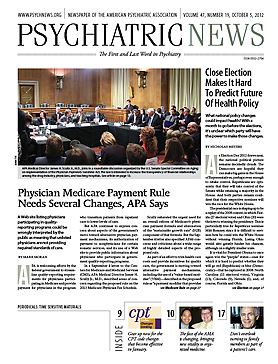Most psychiatric symptoms or illnesses evolve in a social context: understanding the social context of the presenting problem is critical to biopsychosocial formulation and treatment planning. Families (including nonrelative significant others) can help in identifying history, precipitants, and potential future obstacles to the management of presenting problems and thereby significantly impact ongoing treatment.
Psychiatry currently focuses on the identification and treatment of symptoms mainly through pharmacotherapy and, increasingly, forms of neuromodulation. Psychotherapy is recognized as important but is often provided by a therapist other than the psychiatrist. Families are thought of as a useful source of information at best, at worst as an obstacle to patient improvement. This is unfortunate for patients, families, and psychiatrists. Families can be a reliable source of information about a patient’s problems, baseline level of functioning, who the patient is, and how he/she functions in the community, providing a longitudinal perspective on the patient’s dealings with others and the world. How a patient with an illness interacts with his/her significant others and how they in turn interact with the patient have a significant impact on the duration of the presenting problems and their likelihood of resolving and recurring over time.
There are many reasons why psychiatrists do not assess or treat families. Meeting with families is often not cost-effective given current reimbursements. Equally important is a lack of sufficient training for psychiatrists in meeting with families, not only to gather information but also to help them learn how to deal with each other and their loved one’s illness. Family therapy skills are not part of the “core competency” requirements for residency. Without proper training, working with families can be perceived as being more threatening than working with individuals.
Some psychiatrists are uncomfortable having more than one person in the interview room, feeling that the greater the number of people, the more difficult it may be to retain control. Family members often do not see themselves as patients and may assume a more equal and less deferential role with the therapist than an individual patient would. Physicians are less used to, and may be uncomfortable with, having to explain their formulations and treatment plans to a potentially critical and demanding audience. Family members may be hypersensitive to implications that they may contribute to the presenting illness, resulting in increased likelihood of antagonistic interactions between families and the psychiatrist.
There is an extensive research literature that highlights how family and relational factors interact with biological systems to produce and modify disease. The quality of relationships influences the outcome of medical and psychiatric illnesses. Relational risk factors for adverse outcomes include family conflict, rigidity, blame, and high levels of criticism. In contrast, good communications, adaptability, clear roles, support, expressed appreciation, commitment to the family, and spending time together provide protection from the negative effects of illness.
Family interventions can be implemented successfully at all phases of illness: to prevent disease, to reduce chronicity, and to improve functioning in the chronic phase. The APA practice guidelines delineate the benefits of family involvement in the acute and maintenance treatment of several illnesses, including schizophrenia, mood disorders, anxiety disorders, eating disorders, and substance abuse disorders. Families can be involved in the assessment and treatment of the patient at all stages of care and to varying degrees, ranging from participating in psycho-educational programs to intensive family treatment that aims to change relational functioning.
Family research clearly demonstrates that working with families of patients is an empirically valid practice. Family interventions have been shown to be helpful in managing medical illnesses such as hypertension, low back pain, diabetes, systemic lupus erythematosus, and dementia. Evidence-based family interventions have been described for psychiatric illnesses including alcohol dependence, PTSD, schizophrenia, bipolar disorder, major depression, borderline personality disorder, conduct disorder, ADHD, eating disorders, and obsessive-compulsive disorders. Common features of family approaches include helping families to manage stresses as a team, mobilizing a patient’s natural support system, enhancing family closeness, increasing mutually supportive interactions, building extrafamilial support, minimizing intrafamilial hostility and criticism, reducing adverse effects of external stresses and disease-related trauma, and providing education about the illness.
There are many models for understanding and treating families. In general, there is no empirical evidence to suggest that one form of family therapy is more effective than another, although some forms have been more systematically tested for particular psychiatric disorders. Clinicians need to decide which approach fits best with their world view, personality style, and therapeutic capabilities. It is important, however, for therapists to become competent in one major form of family therapy, one that is broad based and well defined enough to be applied to a wide range of family problems so that assessment and therapy can proceed in a clear and consistent way.
Not all families of psychiatric patients are dysfunctional. In fact, many families deal very effectively with recurring, chronic, and severe illnesses. Even well-functioning families, however, can benefit from information about the illness, validation of effective ways of coping, and reinforcement of resilience in the face of major stresses. Being clear about what constitutes functional or dysfunctional families and about normal versus pathological ways of dealing with difficult situations is an important base from which to be able to evaluate the functionality of any family. Meeting with families to assess their ways of dealing with an illness, to provide information, to provide support, and to enlist their participation as collaborators in the treatment process should be a routine part of psychiatric care.

Gabor I. Keitner, M.D., is associate psychiatrist in chief at Rhode Island and Miriam Hospitals and a professor of psychiatry at Brown University. He is co-editor of Clinical Manual of Couples and Family Therapy, published by American Psychiatric Publishing. APA members can purchase the book at a discount at www.appi.org/SearchCenter/Pages/SearchDetail.aspx?ItemId=62290. The book includes a DVD. 
